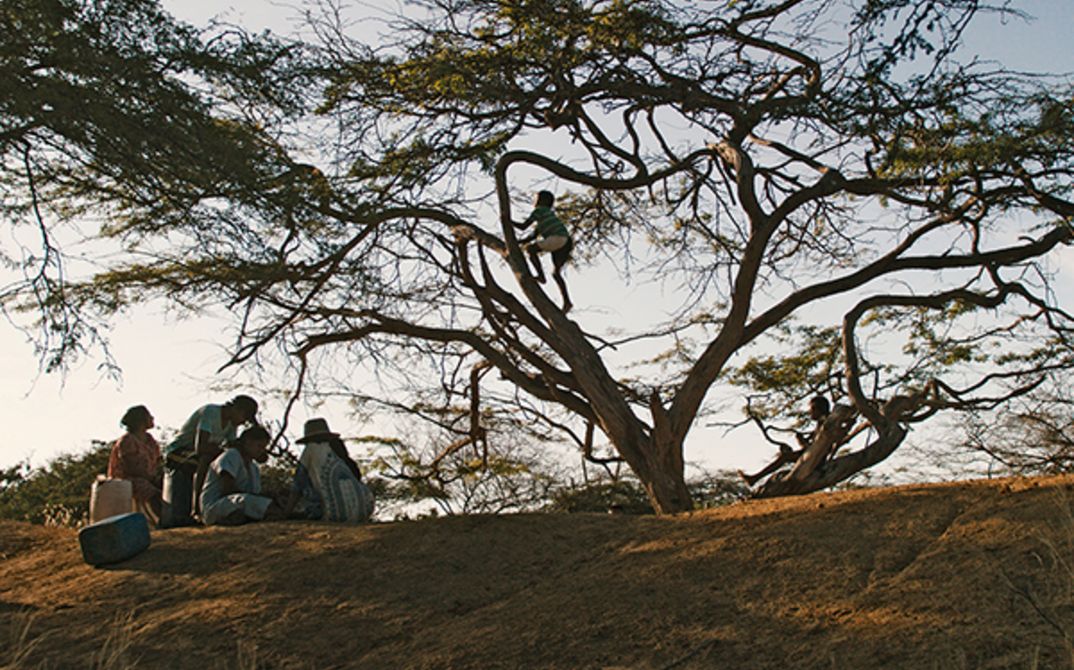75 min. Wayuunaiki, Spanish.
Doris’s dead cousin appears to her in a dream, they used to share much. This vision prompts her to embark upon the most important ritual of the Wayuu, an indigenous group living in Colombia’s Guajira Desert. To ensure that her cousin may rest in peace, Doris must exhume the bones of the deceased and clean them before burying them a second time. With the support of her mother and grandmother, she sets out on a richly sensorial journey that brings her into close contact with the dead and their world.
Together with their protagonist, César Alejandro Jaimes and Juan Pablo Polanco have crafted a debut film full of haunting images and sounds, with a diaphanous aesthetic that gives form to the unseen. The camera glides smoothly and naturally between different worlds and forms of existence, between day and night, moving back and forth from blazing light to all-enveloping darkness. The filmmakers’ gentle gaze combines intimacy and distance at the same time. More than the ritual, they are interested in the faces of its participants, across which flicker suspicion, curiosity and fascination. Just as their own response might be and our own one too. No world is hermetic. (Hanna Keller)
César Alejandro Jaimes was born in Bogotá, Colombia in 1993. In 2010, he participated in an analogue experimental photography workshop at the Guerrero Academy of Arts in Bogotá. He is studying film at the Corporacion Universitaria Unitec Oficial in Bogotá. Jaimes is a co-founder of the production company Los Niños Films in Bogotá. Lapü is his first feature-length film.
Juan Pablo Polanco was born in Bogotá, Colombia in 1994. He studied fine arts at the Javeriana University in Bogotá and worked as a cameraman, editor and assistant director on documentary film productions. After studying film direction at the Escuela de Cinematografía y del Audiovisual de la Comunidad de Madrid (ECAM), he co-founded the production company Los Niños Films in Bogotá. Lapü is his first feature-length film.
